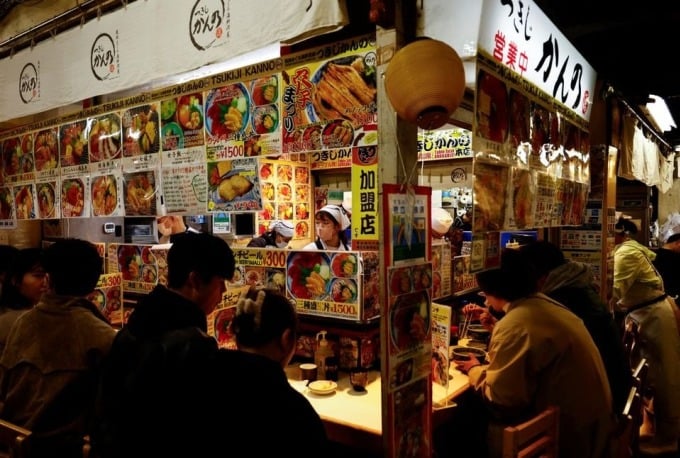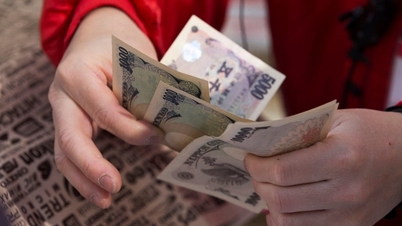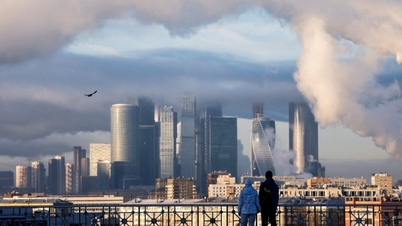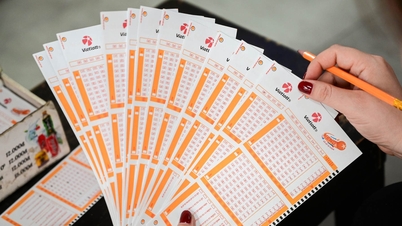People limiting eating out, stopping buying clothes and unnecessary services caused Japan's economic growth to slow down in the past half year.
On February 15, official figures showed that Japan's GDP in the fourth quarter of 2023 fell 0.1% compared to the previous quarter. This is the second consecutive quarter of negative growth for the country. In theory, they have fallen into recession. Japan also lost the title of the world's third largest economy to Germany.
Private consumption, which accounts for more than half of GDP, fell 0.2% in the fourth quarter from the previous quarter, which analysts say is the main reason for Japan's recession.
Risa Shinkawa, a 32-year-old beautician, doesn’t expect a raise anytime soon. In fact, her income is already shrinking. Japan’s service industry is in decline, especially among small businesses that employ 70% of the country’s workforce.
Shinkawa has been forced to cut back on unnecessary spending, like skipping lunch at Tokyo's upscale Ginza shopping district. "My salary is dropping, so I'm having to stop buying clothes and eating out to save money," Shinkawa said.

People have lunch at a restaurant in Tokyo (Japan) in February 2024. Photo: Reuters
The frugality of Shinkawa and millions of others reflects the fragility of Asia's top economy. Japanese consumers, accustomed to years of stagnant prices, have been hit by a weak yen that has pushed up prices for everything. The currency has lost nearly 20% of its value against the dollar in the past two years.
"High inflation but no corresponding increase in spending shows how weak the consumption trend here is," said Hideo Kumano, an economist at Dai-Ichi Life Research Institute.
Officials and analysts point to a drop in spending on eating out as one reason for the slump in consumption. Warmer-than-expected weather has also slowed sales of winter clothing. Demand for services that had boomed post-Covid-19 has also cooled.
For Miho Ozaki, 55, the pressure comes from rising gas and electricity prices. "We've switched to diesel heaters and try not to drive much," she said.
Japan’s stock market has surged in recent sessions, helped by improved corporate governance and a weak yen that has boosted exporters’ profits. However, companies themselves have warned of weak consumption and the impact of inflation, rather than cheering the yen’s gains.
Last month, retail giant Aeon said consumers were becoming more price-sensitive. The company has seen shoppers “growing tired of facing rising prices,” Chief Strategy Officer Motoyuki Shikata said.
Aeon's clothing business was also hit by warmer-than-expected weather, but the company still saw an increase in profit in the final quarter of 2023.
For Ryohin Keikaku, the company that owns the Muji consumer goods brand, price increases are a matter of careful consideration. Consumers accept higher prices for some products, but not others, CEO Nobuo Domae said in an earnings call last month.
Economist Kumano predicts that Japan's economy will face many more challenges. "GDP in the first quarter of 2024 may continue to shrink due to the impact of the earthquakes earlier this year," he said.
Momoka Nakano, 26, doesn't feel bad about cutting back on her spending. She's currently on maternity leave. "I'll eat at home to save money and live a healthy life," she said.
Ha Thu (according to Reuters)
Source link


![[Photo] General Secretary To Lam, Secretary of the Central Military Commission attends the 12th Party Congress of the Army](https://vphoto.vietnam.vn/thumb/1200x675/vietnam/resource/IMAGE/2025/9/30/9b63aaa37ddb472ead84e3870a8ae825)
![[Photo] Panorama of the cable-stayed bridge, the final bottleneck of the Ben Luc-Long Thanh expressway](https://vphoto.vietnam.vn/thumb/1200x675/vietnam/resource/IMAGE/2025/9/30/391fdf21025541d6b2f092e49a17243f)
![[Photo] President Luong Cuong receives President of the Cuban National Assembly Esteban Lazo Hernandez](https://vphoto.vietnam.vn/thumb/1200x675/vietnam/resource/IMAGE/2025/9/30/4d38932911c24f6ea1936252bd5427fa)
![[Photo] The 1st Congress of Phu Tho Provincial Party Committee, term 2025-2030](https://vphoto.vietnam.vn/thumb/1200x675/vietnam/resource/IMAGE/2025/9/30/1507da06216649bba8a1ce6251816820)
![[Photo] Solemn opening of the 12th Military Party Congress for the 2025-2030 term](https://vphoto.vietnam.vn/thumb/1200x675/vietnam/resource/IMAGE/2025/9/30/2cd383b3130d41a1a4b5ace0d5eb989d)



































































































Comment (0)